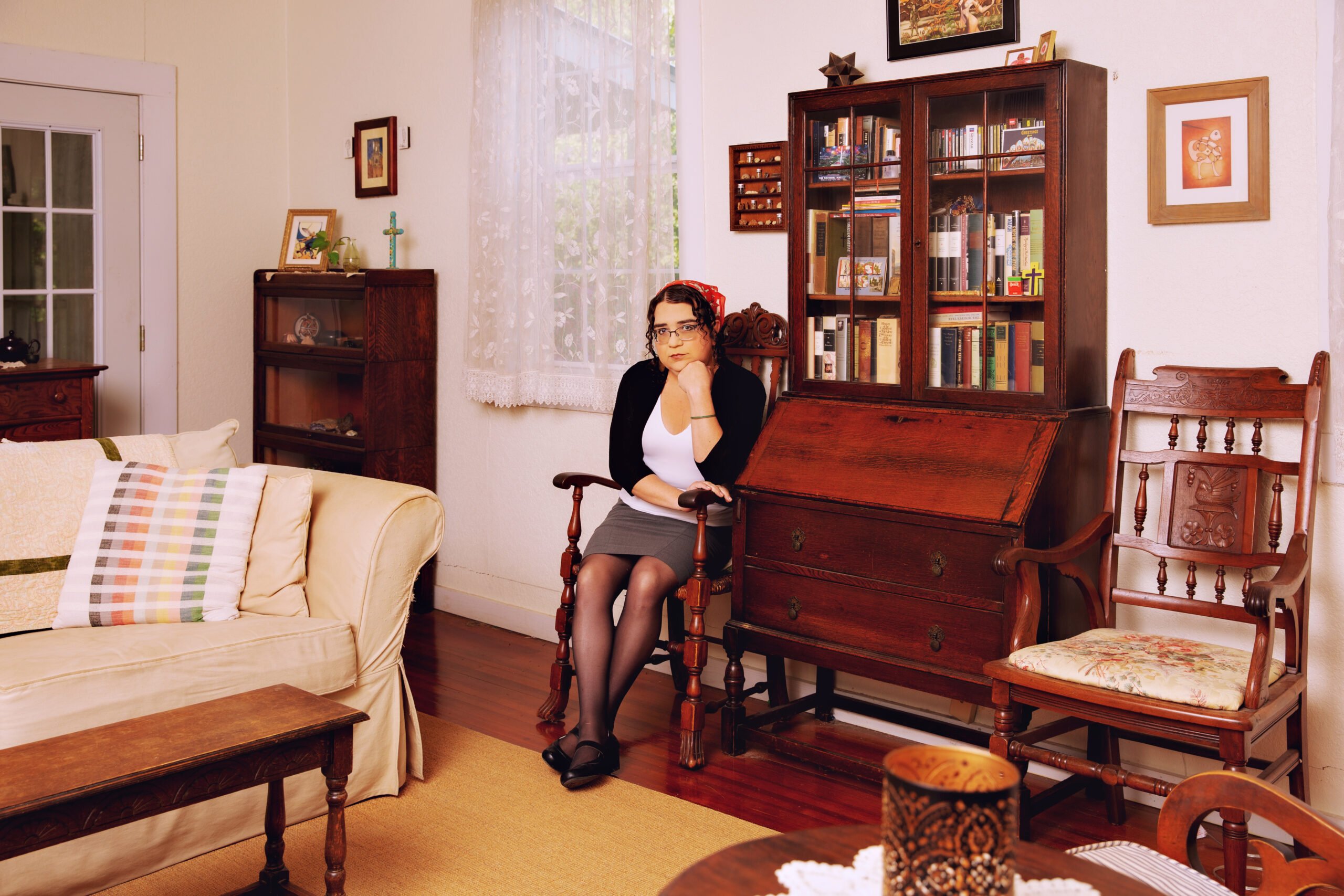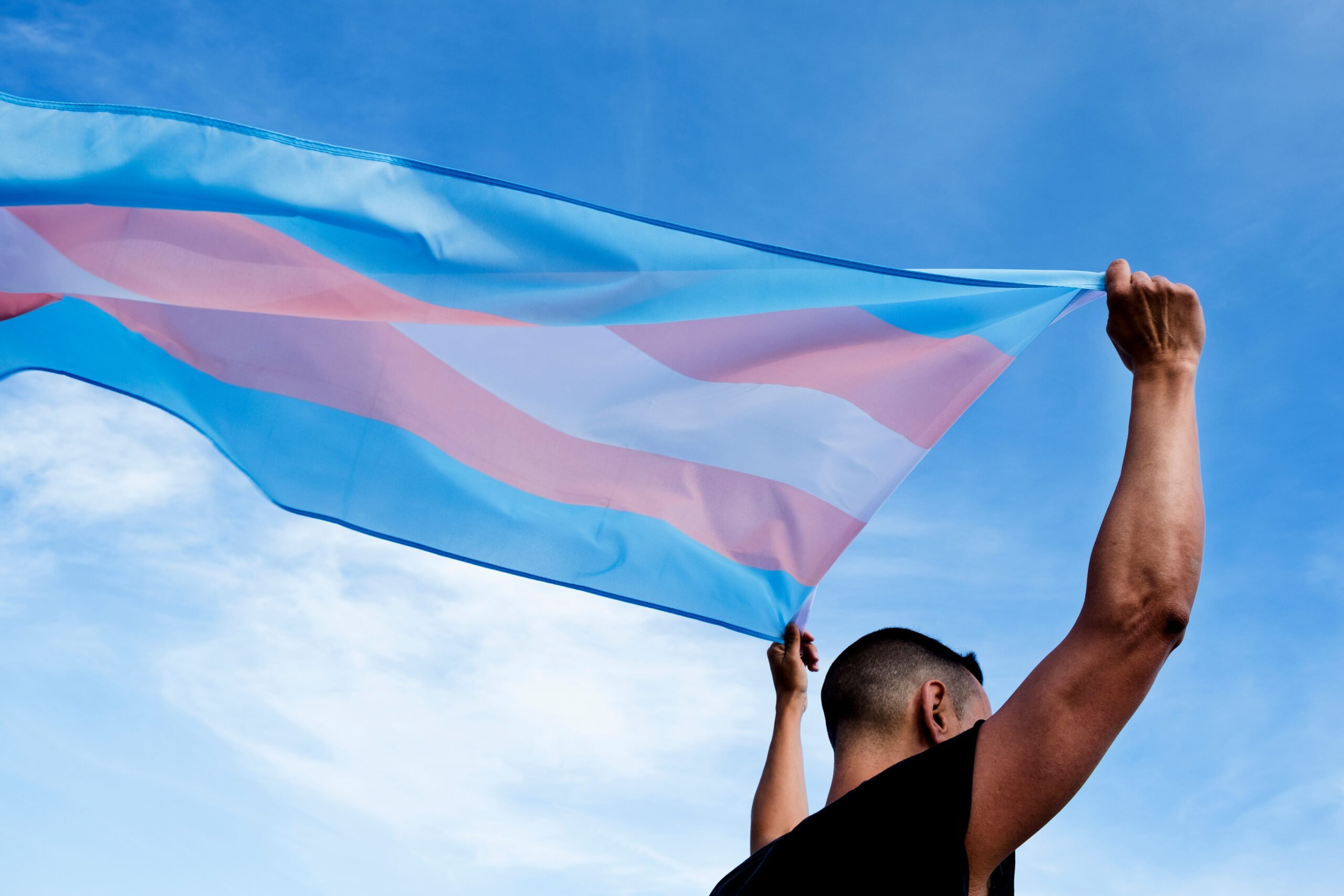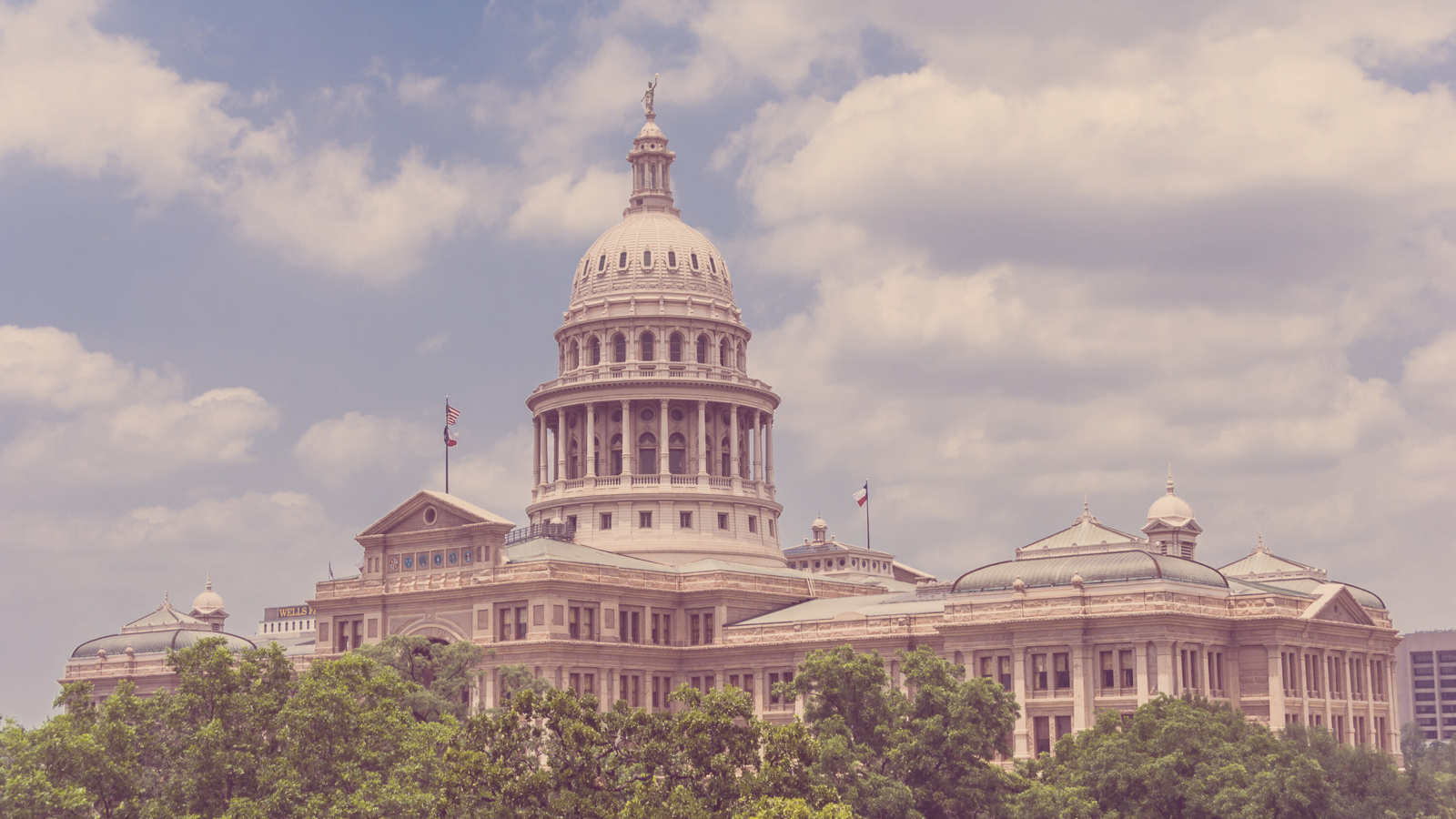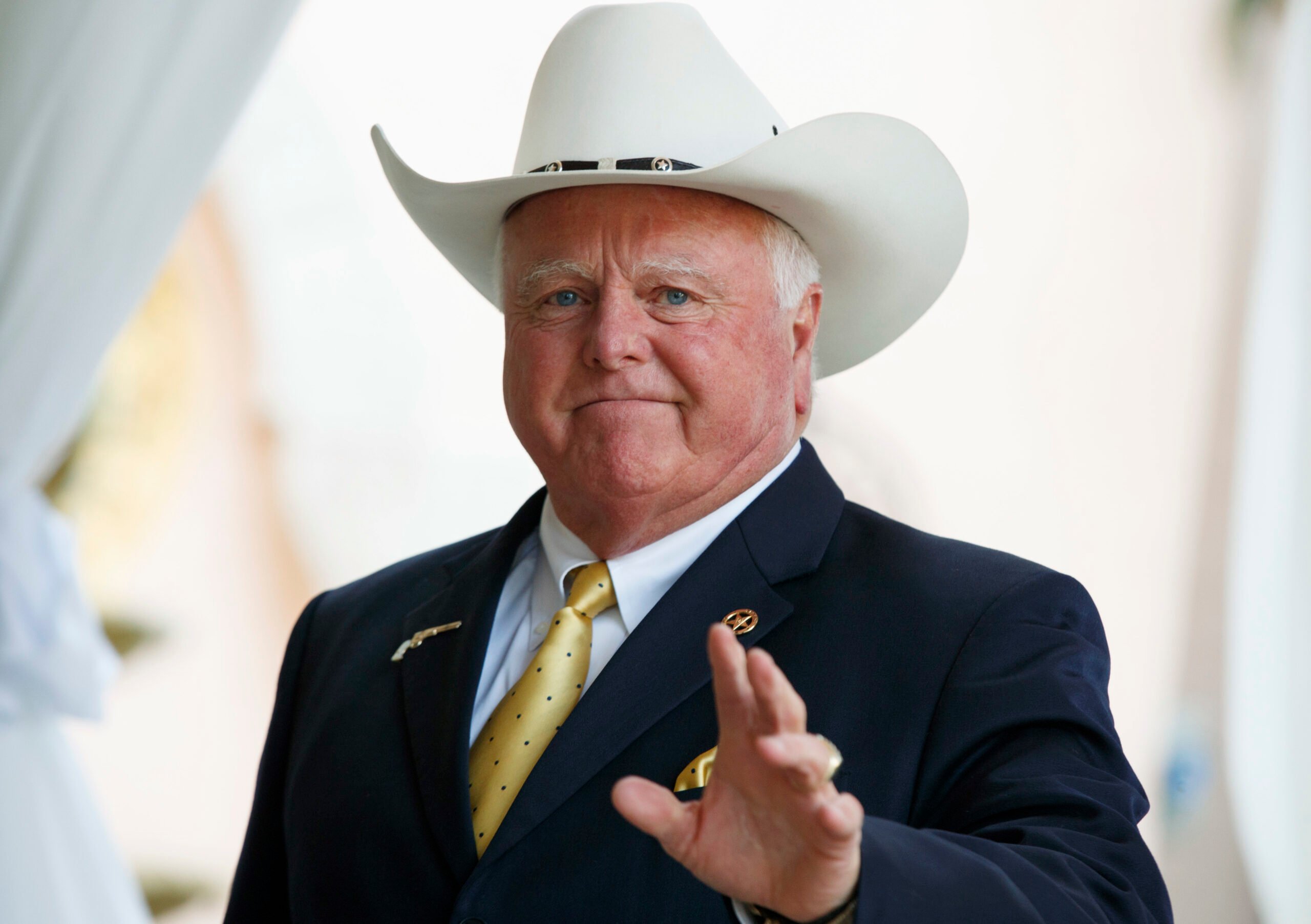
Trans in the Heart of Texas
A math professor in Uvalde finds that the roots of hate are surprisingly shallow.
A version of this story ran in the November / December 2024 issue.
One night last summer, I went out with my wife. Through the restaurant windows, we could see the Uvalde town square: the crossroads of America. This is where we live.
“Hello, ladies,” our waiter said. “What can I get you to drink?” I saw to my surprise that he was one of my college students. He’d been taking classes for several years, but I hadn’t seen him lately. When he brought our drinks out, I tried to encourage him to come finish his degree. Bafflement gathered on his face: Who is this lady?
Rumor has legs in Uvalde. Still, every day I encounter people who don’t know about me. I feel so at ease now, sometimes I forget how different my presentation is. Oh, right, I thought. That. “You do know that I’m your professor, right?” I asked. “I’m Dr. Ortiz.”
His mouth popped open. “I didn’t realize!”
“I’m used to that,” I laughed, and we kept talking.
Inadvisedly, perhaps, I’d come out as transgender through a Texas Observer essay, begun living full-time as a woman, and started gender-affirming hormone replacement therapy all at once in March of last year. I’m not normally so wont to jump into the deep end, but there’s no discreet way to transition in a small town. Just shaving my face occasioned so much remark that I knew it would be impossible to take the gradual approach. For the sake of my family and of my own sanity, people needed to know what was happening. And so, ready or not, out of the closet I came.
It wasn’t graceful, but it was done, and for the first time I hoped I could make sense of my life. Sometimes I’m asked whether I’ve tried just not being trans. My answer is simple: Yes, for 40 years. For 40 years, I did everything I could to mortify this seemingly innate sense of self. The thing people don’t understand is that, when I came out, I didn’t start trying to be something I wasn’t. I stopped trying.
I laugh more, and when I laugh, my heart rises.
Given the political rhetoric swirling about these days, I wasn’t optimistic about my reception in Uvalde. And, yes, some families at my kids’ school move away when I sit to watch a basketball game. Yes, pews sometimes clear out around me at church, though that happens less now than it used to. But, overall, things have been better than I’d imagined.
People know me from a column about math I used to write for the Uvalde Leader-News. So, a few months ago, I decided to write an op-ed about my identity. After it came out, an elderly woman came up to me after mass. “Thank you for writing your article,” she said. “I believe we all just need to be who we are.” That sums up my experience. People have told me that simply knowing me has changed their minds about trans people.
Seventh grade biology notwithstanding, sex is less a pair of mutually exclusive cubbyholes than two fuzzy sets shading into one another. As research ecologist Joan Roughgarden points out in her book Evolution’s Rainbow, every biological sexual distinction (chromosomes, hormones, genitals) has naturally occurring exceptions. Further, when one person genders another—that is, assigns them a gender based on their own observations—they aren’t relying on these biological distinctions, which are invisible to them, but on secondary characteristics and presentation. This gendering takes only a fraction of a second and is largely unconscious.
Not long after I began taking estrogen, which makes my body more feminine, and presenting in a way that comes naturally to me, I clicked over from one binary category to the other in the eyes of strangers. This came as a relief: For the first time in my life, others perceived me as I felt myself to be. But my sense of self is about more than social roles. It’s chiefly about my relationship to my own body. Even before the estrogen had time to actually alter my figure, I felt overcome with a sense of wholeness. I laugh more, and when I laugh, my heart rises. I’m more present to my family. My friends tell me that even my eyes are different. I am alive.
It provokes consternation in some people that my household has remained intact, that I don’t live up to the sensational stereotypes that movies and television have presented them with over the years. It is true that our family has an unusual shape: Two of my kids call me “mommy” and one calls me “dad.” But we’re more or less the same as we’ve always been, except perhaps more so, and happier.
Work, too, has been drama-free. Gender doesn’t come up in calculus and geometry. Some of my students discovered my identity through my writing or by hearing my interview with Krys Boyd of KERA. Once my appearance had changed sufficiently to warrant notice, I made an announcement: “This is a course in math, not in Dr. Ortiz. For the record, I prefer to be called she, her, and ma’am. Thankfully, we’re here to study real analysis, not gender.” And we moved on.
My students responded by conspiring to throw me a surprise birthday party. This got them out of a day of presenting mathematical proofs, so I suppose in that sense I actually was a distraction in the classroom. Just not in the way some politicians insist I must be.
My happy but plain vanilla life stands in contrast to the lurid rhetoric and terrifying intentions of Governor Greg Abbott, his allies in the state Legislature, and Republican lawmakers across the country, as well as the goals of Project 2025, the Heritage Foundation’s extremist blueprint for America’s future. Friends out of state urge me to leave Texas, which is where I have always lived. They fear for my safety. Some trans people I know refuse even to travel through Texas.
Their fears are not unwarranted. What I’ve found, however, is that even in rural Texas the average person couldn’t care less about my gender. Most Texans who know me and hear my story are supportive, wherever they happen to lie on the political spectrum. They may not understand it, but they accept it and move on. Those who do shun, hate, or fear seem, in my view, to be either insecure in their own identity or to be captured by merchants of fear in right-wing media.
Trans people endure constant psychic strain as we make our spaces and serve our communities while lawmakers plot our extinction. But the staged uproar over our supposed effrontery has less to do with reality than with our antagonists’ covert aims and unexamined anxieties. Someone I know recently suggested that trans people bring hate upon our own heads by always seeking attention and affirmation. The prosaic truth is that we simply want to exist.
When my wife and I went out for our 24th anniversary in June, my student, now a college graduate, waited on our table again, and he told us his plans for the future. More recently, I had the honor of recommending him to a public school where he’d applied for a job. I think he’ll be an excellent teacher.
No, I don’t hunger for attention. I just want to go on being who I am—wife, mother, teacher, friend—in peace. I want to go on doing so in the light of day, without fear. That’s all any trans Texan asks.




